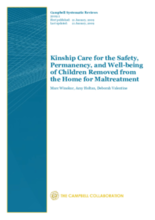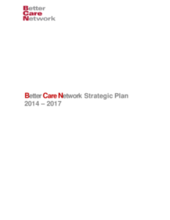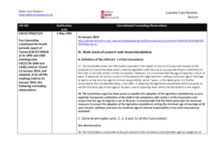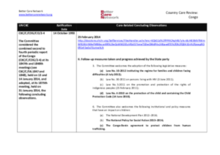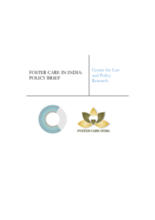Displaying 1871 - 1880 of 2221
This introductory article of a Special Issue of Infant Mental Health Journal on Global Research, Practice, and Policy Issues in the Care of Infants and Young Children at Risk provides a useful overview, placing the articles in the broader contexts of research on institutionalized children and different initiatives to prevent inappropriate care, either through addressing the quality of the care provided or ensuring the appropriateness of the type of care environment provided.
Infant Mental Health Journal has published an important Special Issue on Global Research, Practice, and Policy Issues in the Care of Infants and Young Children at Risk. In this study the authors assessed internalizing disorders, externalizing disorders, and attention deficit hyperactivity disorder (ADHD) in 54-month-old children living with foster families in Bucharest, Romania.
Infant Mental Health Journal has published an important Special Issue on Global Research, Practice, and Policy Issues in the Care of Infants and Young Children at Risk. This article describes a model of care for abandoned and neglected infants in need of urgent physical, social, and medical support as implemented by the Child's i Foundation, an international, nongovernmental organization operating in Uganda.
This systematic review published by the Campbell Collaboration reviewed controlled experimental and quasi experimental studies in which children removed from the home for maltreatment and subsequently placed in kinship care were compared with children placed in non-kinship foster care for child welfare outcomes in the domains of well-being, permanency, or safety.
In 2013, Better Care Network (BCN) initiated an important process of developing a new Strategic Plan identifying the main strategic focus for its work over the next four years (2014-2017). The plan is based on an analysis of BCN’s achievements to date, the strategic areas in which BCN can have most impact in the future by working with key actors to strengthen the response to children without adequate family care.
This country care review includes the care related Concluding Observations adopted by the Committee on the Rights of the Child as part of its examination of the fourth periodic report of Yemen under the Convention on the Rights of the Child at its sixty-fifth Session (13 Jan 2014 - 31 Jan 2014).
This country care review includes the care related Concluding Observations adopted by the Committee on the Rights of the Child as part of its examination of the combined second to fourth periodic report of the Congo under Convention on the Rights of the Child at its sixty-fifth Session (13 Jan 2014 - 31 Jan 2014).
The Infant Mental Health Journal has published an important Special Issue on Global Research, Practice, and Policy Issues in the Care of Infants and Young Children at Risk. This article documents how between 2005 and 2013, the Government in the Republic of Georgia closed 32 large, state-run institutions housing children without adequate family care.
Infant Mental Health Journal has published an important Special Issue on Global Research, Practice, and Policy Issues in the Care of Infants and Young Children at Risk. This article documents an initiative to establish a replicable professional model that would direct the child welfare system in the Nizhny Novgorod Region away from institutional care and toward services for young children and their families that reduce the risk of institutionalization.
This policy brief reviews the legal framework for foster care in India, including an analysis of the current provisions of foster care along with the rules and schemes on foster care framed by states in India, with a focus on Delhi and Goa.

